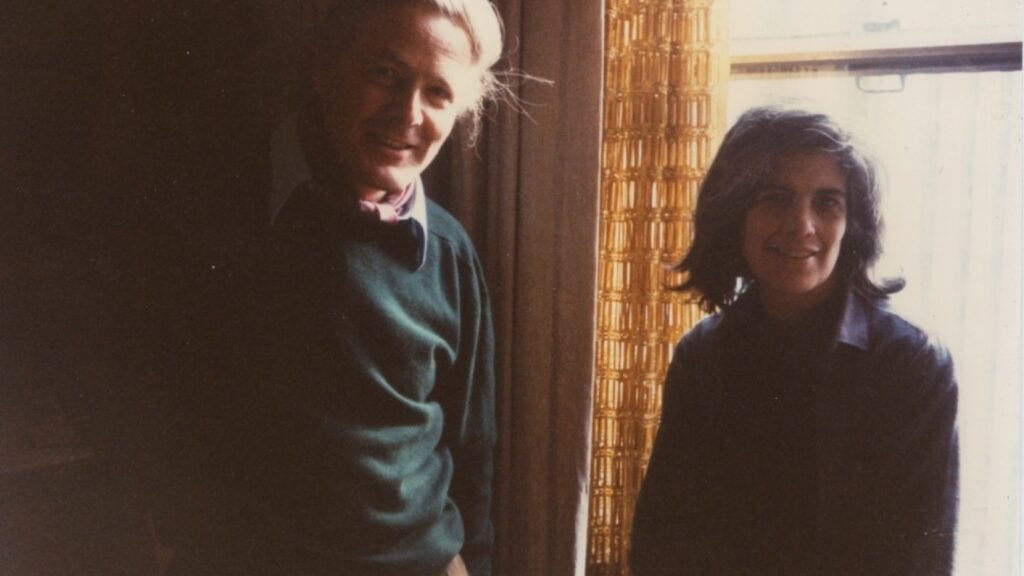In 1982, semiotext(e) published Vol. IV, No.2, The German Issue. For this publication Hans Jurgen-Syberberg contributed the piece Our Syberberg. In a one-paragraph essay Syberberg not only outlines the purpose of New German Cinema, but his own private agenda as a filmmaker. Syberberg, pinpoints, near the end of his piece, the fundamental difficulties of making films in West Germany.

Let’s put an end to art serving as the handmaiden of politics. Art should be Divine Inspiration. Art should be a yearning for the hereafter, the eternal, and the sublime. It should be the way to the truth, wisdom, immortality, and what we call love. Politics as an organizing principle for mediocre compromises needs the assistance of art, which always seeks justice and uses dreams to overcome death. Art is the reason for living, today as in the past. Since Hitler no one in Germany speaks of official government art anymore. The Third Reich was guilty of the highest perversion when it turned the State and society into the ultimate Gesamtkunstwerk. For years we heard of the politicization of art. Now you shall have it. Art as the only true and total opposition. -Hans Jurgen Syberberg, 1982.
Like Jean-Luc Godard’s Dziga Vertov Group, Syberberg advocates film socialism. A filmmaking industry owned and controlled by the artists and the people equally. In West Germany during the early eighties, such a proclamation was considered extremely leftist, liberal beyond the established norms. But it is socialism, the desire for it that connects not just the members of the New German Cinema, but those who first advocated such a movement a decade earlier in France, the New Wave.
The Cold War allowed governments an excuse to police and censor the arts in most of unoccupied Europe. The idea was to prevent radical ideas from taking a foothold in the consciousness of the common man in an attempt to abate contamination by communist and Marxist ideas. Of course the ideas were already there, but to put these ideas into action was strictly prohibited. To navigate a film’s release around government barriers required a tremendous amount of independent financing, selective distribution, and most commonly a way to disguise a film’s political message.
In the early and mid-sixties, this kind of Socialist attitude began to shape the communal style theatres of Germany. Here is where figures such as Rainer Werner Fassbinder and Jean-Marie Straub received their education that they in turn would take with them when transitioning into film. Almost immediately, filmmakers like Werner Herzog established their own production companies to avoid any government sanctioned meddling, whether it was necessary or not. The fault in this kind of action Syberberg makes evident in his closing.
Syberberg uses the term Gesamtkunstwerk, meaning total work of art, in relation to State and society. He very plainly calls for his fellow “film socialists” to organize and realize a Gesamtkunstwerk for the artists and the people. In other words, Syberberg is asking for what Walter Benjamin terms an “auratic perception”(the aesthetic means by which a civilization may revive its myths and culture). The tactics of the New German filmmakers had always been isolated and independent. The fiasco of Germany In Autumn (1978) proved that this generation of German filmmakers was incapable of the unified action that their French counterparts had achieved in Jean-Luc Godard’s Dziga Vertov Group.
Employing various film dialects, styles, effects, and adopting an array of filmic vernaculars, Syberberg constructs Our Hitler as the most mammoth experimental film of all time. Through retelling Hitler’s story, delegating aspects of Hitler to various kinds of film techniques, Syberberg is metaphorically taking art back from Hitler. The skill, effort and vision of Our Hitler is a testament to the power of art, meanwhile the means to which art is employed by Syberberg only condemn Hitler. It’s an exorcism of Hitler from the consciousness of the German artist and filmmaker.
The inherent fear in Germany of a Fascistic Gesamtkunstwerk prevents the socialist Gesamtkunstwerk from materializing in any other political form. But it is also the only solution to the problems within the New German Cinema. In effect, the patient is fearful of the cure.
1982 is historically the year when New German Cinema concludes, marked by the passing of Rainer Werner Fassbinder. Traditionally, proclamations like Syberberg’s occur at a crisis or climax within a film movement. In 1959, Jonas Mekas published his own Call For A Derangement Of Cinematic Senses in the Village Voice. But Mekas was on time, right when the New York Underground film movement really took off as Warhol began making his first films. But Syberberg is too late, though at the time I doubt he knew it.
So what film critics and historians are left with is a proclamation by a filmmaker who has found a solution to the troubles ailing his movement just as that same movement has come to a close. This does not rendering Syberberg’s piece unhelpful. The solutions and ideas he proposes could easily be employed by another group of filmmakers on either a regional or national level. What is distinct about Syberberg’s essay is how overtly political its message is, as well as its affiliation toward contemporary issues circa 1982. I find that it is its timeliness that gives the piece its air of desperation.
